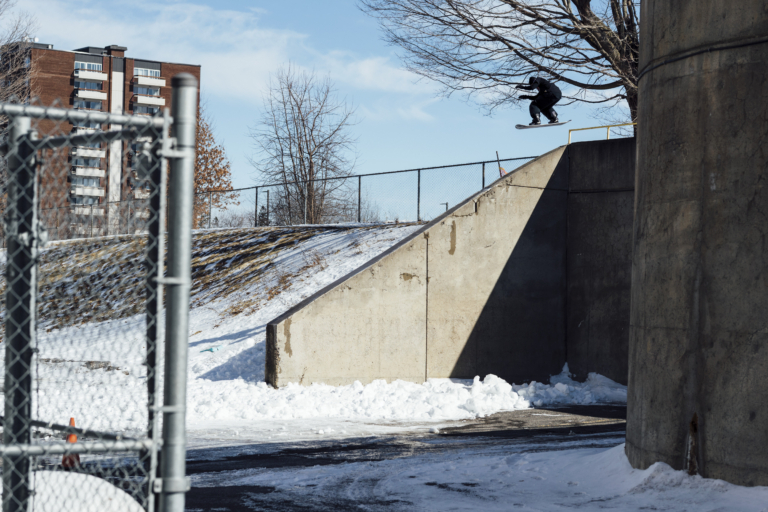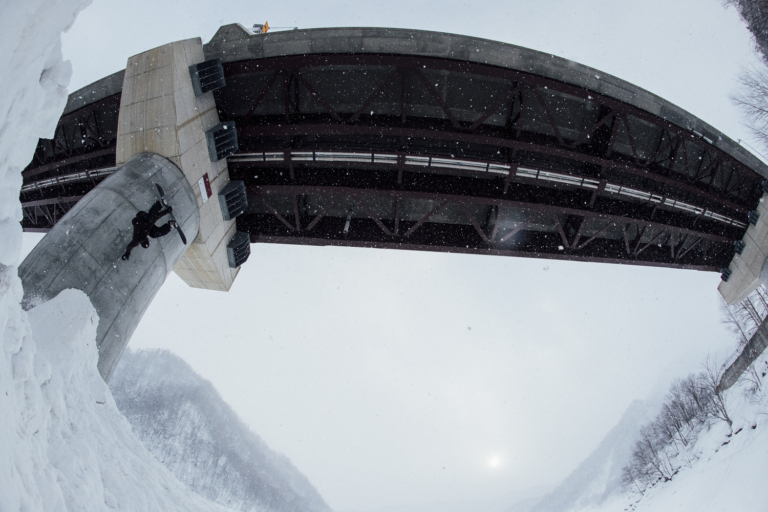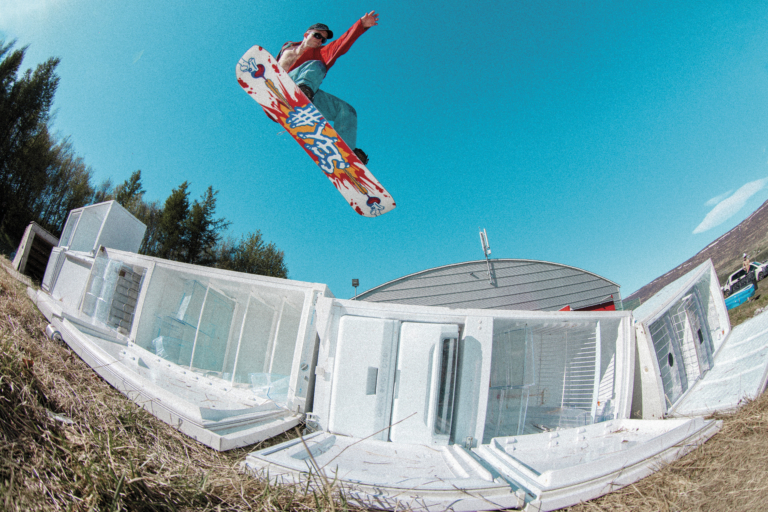So last month the FIS sent out a press release regarding the ongoing transfer of the World Snowboards Points List to their control. It said:
“The World Snowboard Points List (WSPL) recognized as the most comprehensive and authentic ranking of international snowboard athletes in the events of Halfpipe, Big Air and Slopestyle was developed by the Ticket-to-Ride Pro Snowboarding (TTR) and the World Snowboard Federation (WSF) in the early 2000s. As result of the merger between TTR & WSF in 2017, the WSF took over the management of the WSPL. After a three year’s period, the WSF now hands over the future custodianship of the World Snowboard Points List (WSPL) to the International Ski Federation (FIS).”
While the merger has been in the works for some time now, we wanted to know what this announcement actually means, as far as changes in the competitive world and all that. We hit up Chad Buchholz, snowboard media coordinator over at FIS, for some clarification via email and he brought in Roby Moresi, FIS park and pipe competition director, as well. See what they had to say below, and check back for some follow up questions soon (specifically about a potential new FIS Rail contest?). – Mark Clavin
When did the FIS change from International Ski Federation to international Ski and Snowboard federation–2022? Why didn’t it become the FISS?
Chad Buchholz, FIS snowboard media coordinator: The name change was overwhelmingly approved at the FIS Congress in the spring of 2022, and actually you can find the official press release about it here. I don’t have much to add to that, besides that I get it from a branding side why the acronym remained “FIS”. Three-letter acronyms just hit harder (ha). FIS has a new president as of June 2021 and he’s a little more progressive and interested in what’s going on with snowboarding and freeskiing. He actually dropped in the pipe and rolled through the slope course in Beijing to check it out, and watched some of our events there, etc.
We’ve also got a new media and marketing department, as of last season, who are reassessing a lot of what we do on those fronts and who are trying to bring a more forward-thinking approach to things. There’s lots of interesting stuff in the works from their side, and they definitely see much more of the potential and have an appetite to invest in and push park and pipe.
So what is up with FIS taking over WSF’s WSPL?
ROBY MORESI, FIS park and pipe competition director: “Taking over the WSF’s WSPL” is one way to put it, but doesn’t really tell the story. What was important in the change was the understanding that the WSPL was owned by all the nations, most of whom are members of both WSF and FIS. FIS has assumed custodianship of the list, rather than taking it over, noting that it is owned by the affiliated nations. The WSPL has been in place for many years, dating back to the days with TTR, but as national federations and companies changed, it was transferred to control by WSF.
As with all things, management of the WSPL comes with a cost; running and managing the WSPL might seem like a straightforward task, but it’s not. It’s very complex, as the list seeks to create rankings based on results from different events at different levels with different backgrounds, and the whole process is somewhat demanding. WSF did a great job in doing this, but gradually it became clear that they alone (without the full commitment of all affiliated nations) did not have the resources to throw into the lists–and just to be clear, neither does FIS on its own.
The WSPL is a user-based product sustained by those who use it the most, i.e. the affiliated nations in WSF (of which many are obviously affiliated in FIS, as well). Those nations’ and federations’ budgets are not unlimited either, and choices had to be made.
At a certain point, WSF further informed the nations about this difficult situation, and then through them to FIS, exposing the issue and initiating collective discussions and efforts to find solutions for custodianship and resources to keep the list current and comprehensive. Engaging with more nations to find effective solutions would allow the WSPL to be sustainable, and those who pay for the service were asked to commit resources and shoulder some of the duties, and at the same time, make sure that all nations were committing in a fair way to sustain the lists.
These efforts actually helped connect WSF with FIS in a much more holistic way, working to unify the snowboard competition scene. Within the FIS Park and Pipe Subcommittee, a vote was taken in respect to this topic that allowed both WSF and FIS to move on with a handover of the list from practical, functional and economic facets to FIS. Why did this happen? Because many, including FIS nation members, believe in the WSPL as a global list that reflects rankings based on all types of events, and not those of only a single tour or regional set of competitions.
The intention and purpose of the list, despite the handover to FIS, remains the same. So, I would suggest the view should be of a more a collaborative handover, connected to a close relationship in the management of the operational part of the lists between FIS, WSF, and all the nation members.
In order to make sure that the list functions properly and reflects the “fair” rankings, a Classification Advisory Group was established (called CLAG), with both FIS and WSF representatives working together to study, evaluate, and suggest changes on how the lists should be calculated. This group reports to the FIS Park and Pipe Subcommittee, whom ultimately will take votes and make decisions on how the list works.
Due to the pandemic, the group was frozen for a few years, which slowed down the handover, but over the past year, the last stages of work have been completed. During this period, the list continued calculating as it did prior to COVID, and both FIS and WSF agreed that no changes were needed or should be made to those calculations. Now that the pandemic is over and areas where improvement is needed have been pinpointed, the CLAG with the Park and Pipe Subcommittee are able to effectively work on the lists.
So, now it’s up to those who own the WSPL (all affiliated nations) to rule and adjust the calculation and management of the list and work to ensure it’s tailored to the new scenarios we will be facing in competitive snowboarding and preserve its integrity.
This process has been a long one, started back in 2018 and completed in 2022, as agreements got ratified. While not all agreements were ratified, WSF, FIS and the nations kept the list rolling and alive with the true purpose to unify and serve the snowboard community.

Will it change judging criteria?
Chad Buchholz: The minutiae of judging and judging criteria is always in discussion and constantly evolving, with a series of workshops conducted every year around the world to train new judges and keep established judges sharp and up to date with the progression of the sport. However, FIS’ stewardship of the WSPL list, itself, will not have any effect on judging.
You guys also partnered with the Freeride World Tour. Are you set on total snowboard contest domination? That is a lot of moves recently. What is the overall plan?
Not going to lie to you, FIS’ acquisition of the Freeride World Tour came as a surprise to me and many others. I think to a certain extent it was a forward-looking decision on the part of FWT, as FIS obviously holds the position of the largest winter sports federation under the Olympic umbrella. From a sport perspective, if freeride is going to eventually end up as an Olympic event, the path becomes a lot clearer when you’re able to work within the FIS framework. However, from what I understand, there’s no appetite at this point to reformat FWT according to FIS structures and any change will be driven by the founders of FWT.
FWT’s press release to announce the acquisition sums up pretty much everything I know, myself, at this point: “FWT will continue to run the daily operations of the Tour, remaining committed to its core values of safety, performance, responsibility, inclusivity and fun. Moreover, the competition format, offering a fair path to every athlete, from grassroots to elite events, and the judging system, remain unchanged. FIS will place its focus on the marketing and governance of the FWT, instilling a structure that follows the guidelines of recognized Olympic sports.”
As it stands now, there isn’t any impetus from the side of FIS to change what FWT has established or is doing. In fact, the biggest hope for myself, from a media coordinator perspective, is that we’re able to integrate some of the incredible stuff they’ve been doing in regards to content, production and promotion and adapt that for the World Cup. FWT has been really forward-thinking in their approach over the years and I believe that there’s a lot for FIS to learn from and adopt in some facets of our operations.

If there is all this money being passed around buying leagues and partnering with stuff, why don’t we have better pay for year-round judging (something that they have noted, as well)?
The FWT acquisition is more of a merger than a purchase, with FIS assuming financial responsibility and oversight of the tour and brand, so I’m not sure those two things are really comparable.
However, when it comes to judging, pay has increased significantly in the last couple of seasons–though the judges still get paid on a day rate. As we only have a five-month competition season, with a rotating cast of judges, it would be hard to justify year-round pay for judges.
It’s important for the fairness of the competitions to have some new faces in the booth from event to event, and also to consistently be working to bring new judges up to the World Cup level to keep the pipeline flowing. There’s a distinct possibility of things stagnating if it’s only the same six to eight people in the booth at every single event, if you know what I mean. There are always a few carryover judges from one event to another, but then there are also some fresh eyes coming into every event, which helps keep perspective fresh across the whole panel.
The job of the judges is critically important, and it’s critically important for FIS to continue to have the absolute best judges in the world doing the best job possible. Recently there’s been positive movement in the pay department for those judges and I expect that trend will continue, moving forward.

Any other big changes coming for the upcoming season or leading up to the Olympics?
It won’t be on the Olympic program, but you can expect to see a jib-only competition format coming from FIS soon, tentatively just called FIS Rails.
As far as major changes go, however, there isn’t anything on the horizon now that the WSPL deal is finally done. We’re working to bring some World Cup competitions to strong shred nations where we haven’t been in a while, like Norway and Japan, and we’re also working with the established venues to continue to up the ante and improve every season. Also, with the new media and marketing department in place and starting to make some headway, we’re looking to lock in some brand partnerships with the Park and Pipe World Cup and generate some more resources out of that.
We feel like we’re in a pretty good place with the World Cup right now. The courses/pipes are consistently elite, the riding we’re seeing week-in and week-out is mind-blowing, and the communication, coordination, and cooperation with athletes, teams, and organizers is at the best level I’ve ever seen. It’s a pretty good vibe out there on tour these days. We’re not resting on it, but the foundation we’ve established is strong. We’ve just got to keep building.
Quick Follow Up Regarding FIS Rails:
Rails is approved as a format, there’s a rule book in place and approved (necessary for any FIS competitions). This season will be a soft launch with eyes on possibly establishing a World Cup in the near future. But for right now, it’s undefined and focused on expanding FIS-sanctioned competition into non-traditional venues and markets. Rail events sanctioned by FIS could help young riders get support from their national associations; it’s a great way to develop snowboarding in non-traditional markets because it doesn’t need much snow or slope. We can bring events to the people, like with city big air, but with 25% of the investment.






